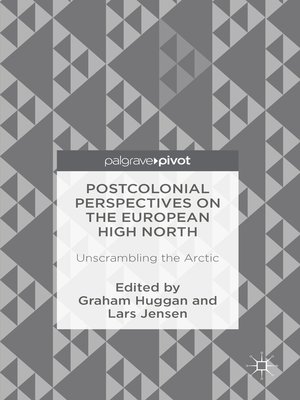Postcolonial Perspectives on the European High North
ebook ∣ Unscrambling the Arctic · Literature, Cultural and Media Studies
By Graham Huggan

Sign up to save your library
With an OverDrive account, you can save your favorite libraries for at-a-glance information about availability. Find out more about OverDrive accounts.
Find this title in Libby, the library reading app by OverDrive.



Search for a digital library with this title
Title found at these libraries:
| Library Name | Distance |
|---|---|
| Loading... |
This book approaches the Arctic from a postcolonial perspective, taking into account both its historical status as a colonised region and new, economically driven forms of colonialism. One catchphrase currently being used to describe these new colonialisms is 'the scramble for the Arctic'. This cross-disciplinary study, featuring contributions from an international team of experts in the field, offers a set of broadly postcolonial perspectives on the European Arctic, which is taken here as ranging from Greenland and Iceland in the North Atlantic to the upper regions of Norway and Sweden in the European High North.
While the contributors acknowledge the renewed scramble for resources that characterises the region, it also argues the need to 'unscramble' the Arctic, wresting it away from its persistent status as a fixed object of western control and knowledge. Instead, the book encourages a reassertion of micro-histories of Arctic space and territory that complicate western grand narratives of technological progress, politico-economic development, and ecological 'state change'. It will be of interest to scholars of Arctic Studies across all disciplines.
While the contributors acknowledge the renewed scramble for resources that characterises the region, it also argues the need to 'unscramble' the Arctic, wresting it away from its persistent status as a fixed object of western control and knowledge. Instead, the book encourages a reassertion of micro-histories of Arctic space and territory that complicate western grand narratives of technological progress, politico-economic development, and ecological 'state change'. It will be of interest to scholars of Arctic Studies across all disciplines.







